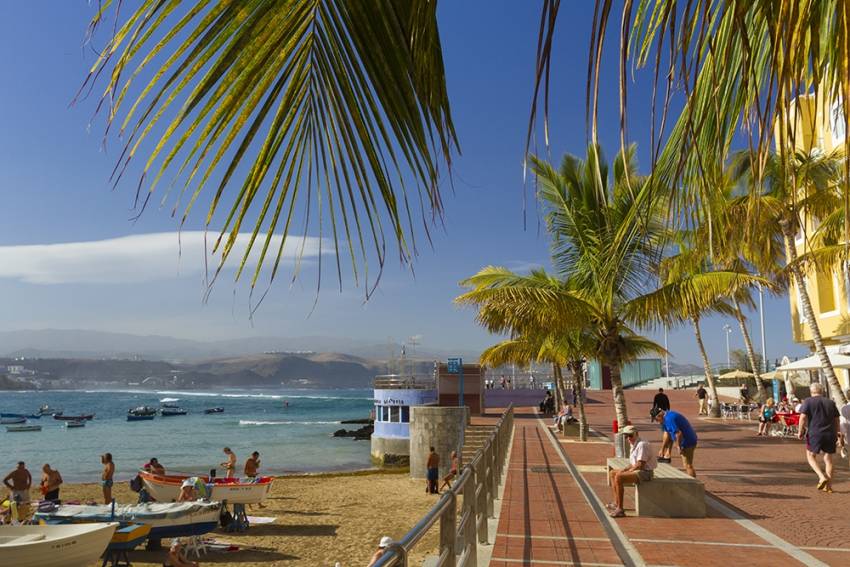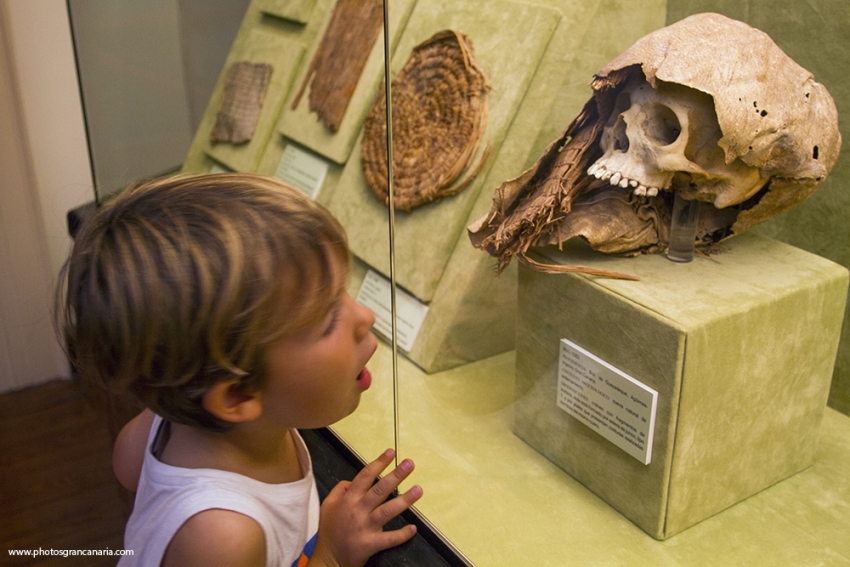Do a Bermuda shorts count
Tourists wear shorts while Canarians wear thongs. If your beach has a high proportion of budgie smugglers then you are mixing with the locals. Telltale signs of tourist activity include bum-bags, Panama hats on people under pension age and children who don’t know how to walk on the hot sand.
The general tone
Canarians on the beach are all one colour: Brown. Tourists on the other hand range from pure white through pink to an amazing range of reds and even purples. They are rarely all one colour. After two days in the sun, their skin starts to look like 1970s wallpaper.
Look at the restaurants
Canarians love eating seafood by the ocean. If the restaurants by your beach advertise English breakfasts and Irish coffees on chalkboards then you are too close to a resort for comfort. Local restaurants smell of fried squid and write their menus (Spanish only of course) on whiteboards. Local beach restaurants also tend to be basic as Canarians care more about the quality of the food than the decor. Any restaurant with table decorations other than plastic flowers is aiming for tourists.
A long dessert menu is a sure sign of a tourist restaurant as local joints do two puds and a selection of ice creams. No self-respecting Canarian would ever eat a banana split in public.
Observe the beachgoers
Tourists tend to go to the beach in couples or as small family units. Canarians hit the sand en masse and aren’t happy unless at least three generations are represented. They build temporary shelters out of parasols and a couple of tables and then cram themselves into the smallest space possible. Canarians also bring food and drink with them, as well as board games, surfboards, and fishing equipment.
Big groups of people on the beach, with a granny parked on a deckchair in the shade, are a sure sign of a local beach.
Decibels and sand attitude
The decibel level on a Canarian beach is a sure way of gauging whether it is popular with locals or tourists. The louder the beach, the more local it is.
Tourists and their children seem to think that sand is dangerous. They will play in it but wash themselves thoroughly before returning to their towels. Canarians prefer to roll around in the sand and often don’t bother with towels at all. Local teenagers break all the Anglo-Saxon beach rules by charging around lobbing handfuls of sand at each other.
The key points
Local Beach: Brown skin, big groups, sand everywhere, grannies parked in the shade, the smell of seafood.
Tourist beach: High prices, smart restaurants, clean towels, sunburn, bumbags and Bermuda shorts.
Lex Says: Canarians don't drink water on the beach, they drink Tropical beer














